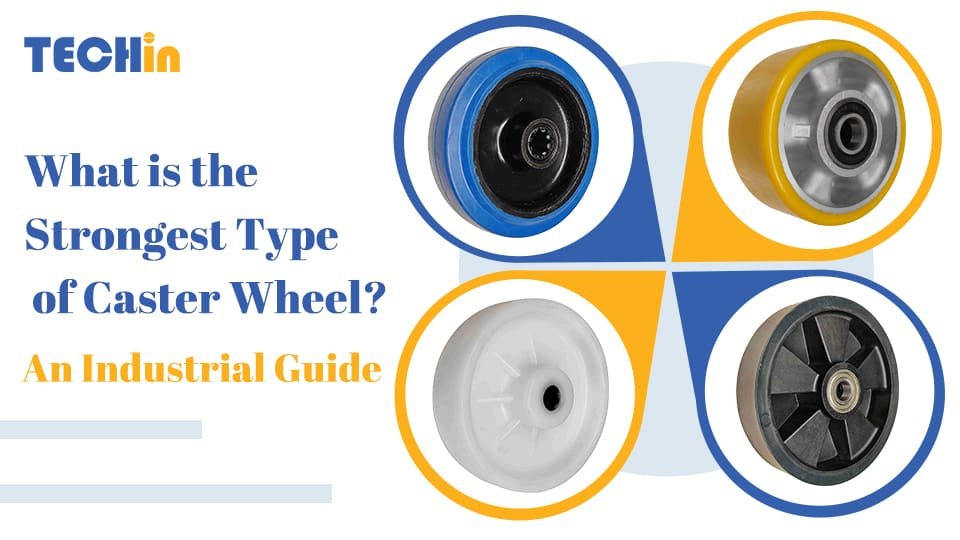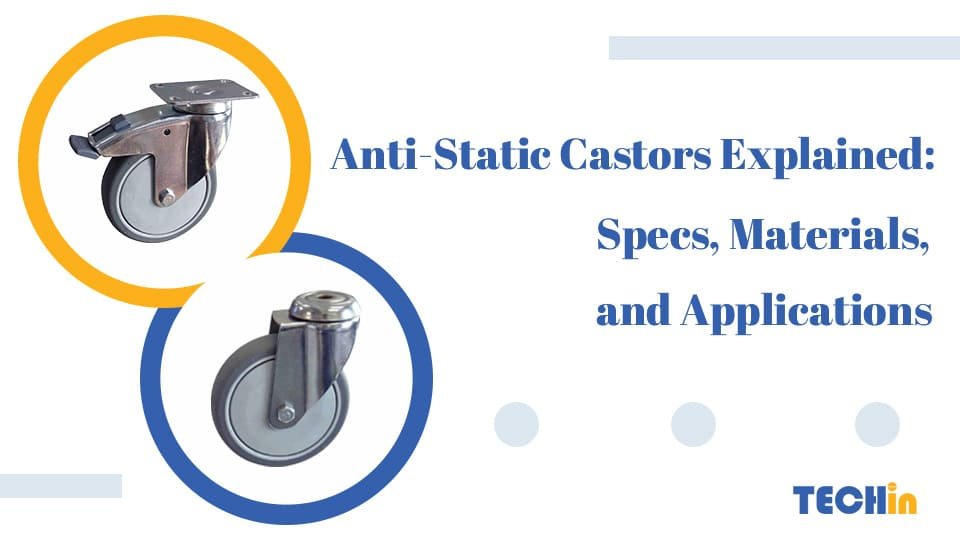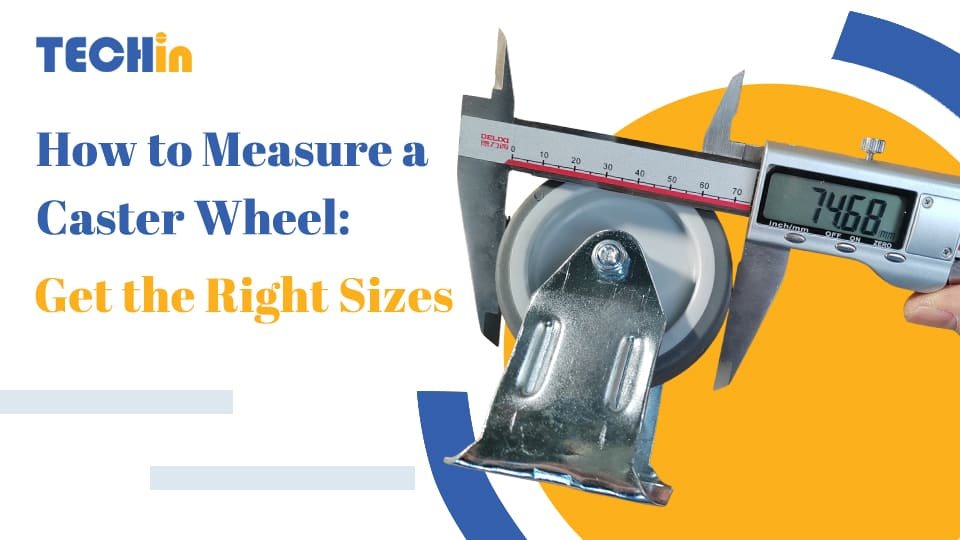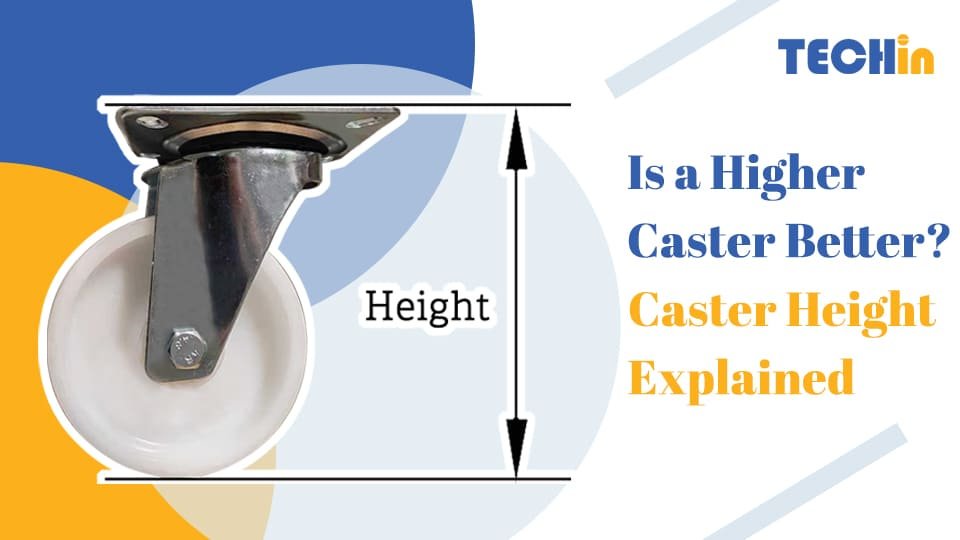Finding the right casters for your carpet can be a challenge, but it’s important to do so to ensure smooth movement and protect your flooring. If you use the wrong casters, you could damage your carpet, have a hard time moving your furniture, and even wear out the casters. Whether you have low-pile carpet in an office or thick, plush carpet at home, the type of casters you choose will determine how well your furniture or equipment moves across the surface.
To choose the right casters for your carpet, you need to know the pile height of your carpet. For low-pile carpets, you want smaller, hard nylon or polyurethane wheels because they give you better mobility with less friction. For high-pile or plush carpets, you want larger diameter caster wheels (100mm or more) made from durable materials like nylon or polyurethane because they reduce friction, make it easier to move, and protect your carpet. The right size and material can make a big difference.
Now let’s look at how different types of casters work with different types of carpet.
What Type of Caster Wheels is Best for Low-Pile Carpets?
Low-pile carpets are characterized by their short, tight fibers. These carpets are often found in offices, commercial spaces, and high-traffic areas because they’re durable and easy to clean. When selecting caster wheels for this type of carpet, the key consideration is friction. You want caster wheels that glide smoothly without creating too much resistance, which could cause your furniture to stick or drag.
Hard wheels made from materials like nylon or polyurethane are excellent choices for low-pile carpets. These materials reduce friction, allowing the wheels to roll easily over the compact carpet fibers without wearing down the carpet or the wheels themselves.
- Wheel size: For low-pile carpets, small to medium-sized wheels (50mm-75mm in diameter) are typically sufficient. Smaller wheels are ideal for lightweight furniture, such as office chairs, desks, and carts, where heavy loads are not a concern. Larger wheels may be unnecessary unless you are moving heavier objects or need greater stability.
- Use case example: If you have an office chair with caster wheels, nylon wheels with a 50mm diameter would provide smooth, easy movement across a standard office carpet. This setup minimizes drag, prevents your chair from getting stuck, and protects your carpet from wear.
Tip: For even smoother movement on low-pile carpets, look for casters with ball bearings. These allow for less friction and greater ease of movement, especially when swiveling furniture like office chairs or carts.
Which Caster Wheels Work Well for High-Pile or Plush Carpets?
High-pile carpets, such as plush, shag, or deep-pile carpets, have long fibers that create a soft, cushioned surface. While these carpets are luxurious and comfortable, they present challenges when it comes to mobility. Furniture with small caster wheels may sink into the thick carpet, making it difficult to move. This is where larger caster wheels come into play.
- Wheel size: For high-pile or plush carpets, you’ll need larger caster wheels (100mm or larger) to distribute the weight more evenly and prevent the wheels from getting stuck in the carpet fibers. Larger wheels are also better at reducing friction, making it easier to push or pull furniture across the carpet.
- Material: In addition to size, the material of the caster wheels is crucial. Hard nylon or polyurethane casters are durable and prevent the wheels from sinking into the carpet. They are also strong enough to withstand the friction caused by moving over thicker carpet, ensuring smooth mobility and protecting the carpet from damage.
- Use case example: If you have a large couch or a heavy bookshelf on a plush carpet, you’ll want to equip it with 100mm nylon casters. These wheels can handle the weight of the furniture while rolling smoothly over the thick carpet fibers.
Tip: Avoid using rubber or soft-tread casters on high-pile carpets. While rubber is excellent for hard floors, it tends to create too much friction on thick carpets, making it harder to move furniture and potentially damaging the carpet.
Do Different Carpets Require Different Types of Caster Wheels?
Yes, choosing the correct caster wheels depends heavily on the type of carpet you have. The thickness, texture, and density of your carpet determine how much friction and resistance your wheels will face. This is why it’s important to select wheels that are specifically suited to your carpet type:
- Low-pile carpets: As mentioned, low-pile carpets require smaller wheels made from hard materials to reduce friction. These carpets don’t offer much resistance, so a small, firm wheel will provide optimal performance.
- High-pile carpets: High-pile carpets, on the other hand, demand larger wheels to avoid getting stuck. The longer fibers of thick carpets increase friction, which makes it harder for smaller wheels to roll smoothly.
If you use the wrong type of caster wheels for your carpet, you could end up with frustrating results. For example, using small caster wheels on thick carpet may result in poor mobility, while larger wheels on low-pile carpet might not offer the best control.
Tip: Consider the weight of your furniture as well. Heavier furniture needs larger caster wheels to distribute weight more evenly, regardless of the carpet type.
How Does Wheel Size Impact Performance on Carpets?
The size of your caster wheels directly impacts how well they move across carpeted floors. Larger wheels provide several advantages over smaller wheels, particularly on thicker carpets:
- Larger wheels distribute weight more effectively, which reduces pressure on the carpet fibers. This prevents the wheels from sinking into the carpet, ensuring smooth movement even when moving heavy furniture or equipment.
- Smaller wheels can struggle on thicker carpets because they concentrate the load on a smaller area, increasing the likelihood of getting stuck in the carpet fibers.
For thinner carpets, smaller wheels work just fine because they don’t need to overcome as much resistance. However, for thicker carpets, larger diameter wheels (100mm or more) are essential for maintaining mobility and protecting both the carpet and the caster wheels themselves.
Tip: If you’re unsure about what size wheel to choose, start with a larger diameter, especially if you have a high-pile carpet. It’s easier to adjust downward in size if necessary, but starting too small could lead to performance issues.
What Materials Should Caster Wheels Be Made From for Carpeted Floors?
The material of the caster wheels is a crucial factor when selecting wheels for carpeted floors. Two materials stand out for their durability and performance on both low-pile and high-pile carpets:
- Nylon Casters: Nylon is a hard, durable material that resists wear and tear. It works well on both low-pile and high-pile carpets because it glides smoothly and doesn’t create excessive friction. Nylon casters are also capable of handling heavier loads without losing performance.
- Polyurethane Casters: Polyurethane is another excellent option for carpeted floors. It offers a balance of durability and flexibility, making it ideal for rolling over carpets without damaging the fibers. Polyurethane casters are great for both high-traffic areas and heavy furniture.
Tip: Always avoid soft or rubber caster wheels for carpeted floors. While they are good for hard surfaces, they tend to stick and create friction on carpets, which can damage both the carpet and the wheels over time.
Summary
Choosing the right casters for carpeted floors is all about understanding your carpet and choosing casters that work with it. For low-pile carpets, you want smaller, hard wheels made of materials like nylon or polyurethane. For high-pile carpets, you want larger wheels that will help you move more easily and reduce friction. The size and material of the wheels are important because they determine how easily your furniture moves and how well your carpet is protected. By choosing the right casters, you can make your furniture easy to move, protect your floors, and keep your carpet looking great.










